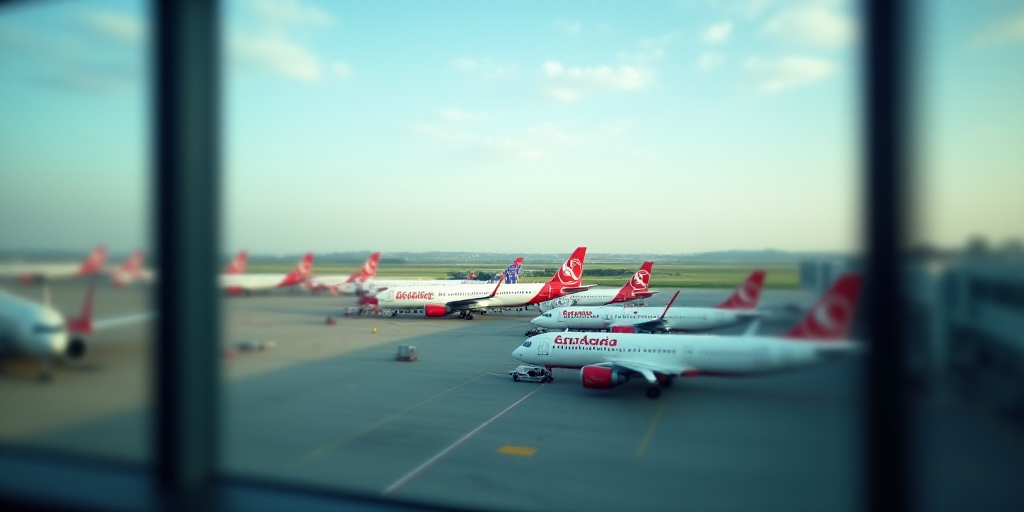Background on Air Canada and the Relevance of the Strike
Air Canada, Canada’s flagship airline, is the largest carrier in the country, transporting approximately 130,000 passengers daily to 180 cities worldwide. The company’s operations have a significant impact on Canadian travelers and the broader economy.
The Strike Begins
On Saturday morning, around 10,000 Air Canada cabin crew members went on strike due to a salary dispute. Their grievances included not only wage increases but also unpaid groundwork during the boarding process.
Government Intervention
In response to the strike, Canadian Labor Minister Patty Hajdu invoked a legal provision to compel both parties to submit to binding arbitration through the Canadian Industrial Relations Board (CIRB). The minister argued that the strike would only exacerbate financial burdens on Canadians.
CIRB’s Decision and Air Canada’s Response
The CIRB ordered Air Canada to resume operations and for all cabin crew members and Air Canada Rouge staff to return to their duties by 2:00 PM EDT on August 17, 2025. Air Canada announced the gradual resumption of flights starting Sunday evening, warning that full operational normalization would take several days, with some flight cancellations expected in the next seven to ten days.
Union’s Criticism and Concerns
The Canadian Union of Public Employees (CUPE), representing the striking workers, had previously warned members would remain on strike until forced back to work by the government. The union criticized the government’s intervention, claiming it rewarded Air Canada’s unfair negotiation stance and set a dangerous precedent.
CUPE also highlighted a potential conflict of interest, as CIRB chair Maryse Tremblay had previously worked as Air Canada’s legal advisor. The union expressed concern over this “almost unthinkable conflict of interest” on social media.
Impact on Passengers
Prior to the strike’s official commencement, Air Canada had gradually reduced its operations. By Friday night, the airline announced the cancellation of 623 flights in recent days, affecting over 100,000 passengers.
Wage Proposal and Economic Context
Air Canada had proposed increasing the average annual salary for senior cabin attendants to CAD 87,000 (USD 65,000) by 2027. However, CUPE deemed this insufficient, especially considering inflation.
Government Intervention in Labor Disputes: A History
The Canadian government has intervened in labor disputes before. In November 2024, it ordered the immediate resumption of operations at several Canadian ports. Earlier that year, it facilitated the return of railway workers to work.
Economic Challenges
Canada’s economy, though showing resilience, is beginning to feel the effects of the trade war initiated by former U.S. President Donald Trump, with tariffs impacting vital sectors like automotive, aluminum, and steel.
Key Questions and Answers
- What was the cause of the Air Canada strike? The strike was due to a salary dispute between Air Canada and its 10,000 cabin crew members, who sought better wages and compensation for unpaid groundwork during boarding.
- How did the Canadian government intervene? The government invoked a legal provision to compel both parties to submit to binding arbitration through the Canadian Industrial Relations Board (CIRB).
- What concerns did the union express? The Canadian Union of Public Employees (CUPE) criticized the government’s intervention, claiming it rewarded Air Canada’s unfair negotiation stance and set a dangerous precedent. They also highlighted a potential conflict of interest due to CIRB chair Maryse Tremblay’s previous employment with Air Canada.
- What was Air Canada’s proposed wage increase? Air Canada proposed increasing the average annual salary for senior cabin attendants to CAD 87,000 (USD 65,000) by 2027.
- How has the trade war affected Canada’s economy? The ongoing trade war initiated by former U.S. President Donald Trump has started to impact Canada’s vital sectors, including automotive, aluminum, and steel.






